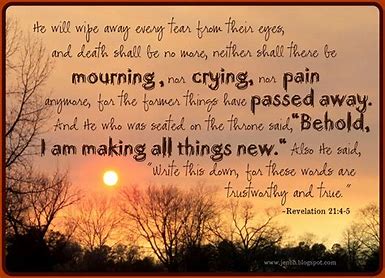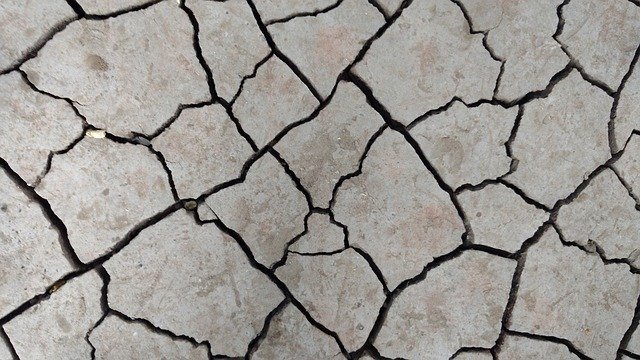I lost two sons, at opposite ends of the age spectrum. The first, Russell, was a full-term baby, born in June of 1982 with a diaphragmatic hernia. He died the same day he was born. The second, Cullen, was 32 years old at the time of his death from an accidental overdose of heroin and methadone. Had I been in charge of writing my life’s story, I would have rewritten the script. While I had no control over these circumstances, their deaths, and the subsequent lessons I learned from them, changed my life forever… and in some ways, for the better.
You say, “How could that be? Did you want your sons to die?” Certainly not. And at the time of Russell’s death, I was particularly bitter and angry, ultimately at God. After all, He had not chosen to miraculously heal my baby. When Cullen died, my anger had dissipated, but I still struggled with cynicism. He had struggled valiantly with addiction for many years, and seemingly had broken the hold it had on his life. I was SO hopeful! But again, the healing I desperately desired did not happen, but I was in a very different place, spiritually speaking, than when our baby died. These life-changing lessons had begun their work.
1. I am not in charge! NOTHING happens outside of God’s control. This concept is really quite freeing. Would I have done things differently? Absolutely! Psalm 103:19 reads, “The LORD has established His throne in the heavens, And His sovereignty rules over all.” God is in charge of His world; I am not.
2. I do not fear the future. There is so much strife, divisiveness, and turmoil in the world today; there is much to be feared. A parent’s worst nightmare is the death of one’s child; it is an out of order death, the worse that can happen. A parent expects to bury his parents, but never his child. Yes, there is no lack of things to be feared, but I know and trust the character of the One who knows the future. He sustained me through the worst of the worst, and He tells me in Romans 8:28, “that God causes all things to work together for good to those who love God, to those who are called according to His purpose.” ALL means ALL! I can live in the tension of daily life knowing that in whatever circumstances I find myself, God WILL CAUSE even the most tragic events to somehow work together for my good and for His glory. Do I understand how it will work? No, but I trust the One who does the working; I am a example of His work in progress!
3. I let go of the “what if” and “if only” thoughts. The number of days of the lives of both of my sons were known from eternity past. I could not have added even one micro-second to either of their lives. Psalm 139:13, 16 reads, “For You formed my inward parts; You wove me in my mother’s womb. Your eyes have seen my unformed substance, And in Your book were all written The days that were ordained for me, When as yet there was not one of them.” I am freed of the guilt of what I could have, should have, or would have done on their behalf.
4. I live in the present, very much aware of the brevity of life. The past is useful in that it shows me how far I’ve come, it is the source of my memories, but the future may never be. My mind and heart are centered in the present, even in the moment. James 4:14 tells me, “Yet you do not know what your life will be like tomorrow. You are just a vapor that appears for a little while and then vanishes away.”
5. I am a more compassionate, empathetic person. I am familiar with pain, grief, loss, and while my circumstances may be different from those of another person, I can readily identify with parts of their struggle and can reach out to them without being uncomfortable in the situation. And that is as it should be. I read in Corinthians 1:4, “Who (God) comforts us in all our affliction so that we will be able to comfort those who are in any affliction with the comfort with which we ourselves are comforted by God.”
6. I take a lot less for granted; I have a attitude of gratitude. God owes me nothing; I owe Him everything. He is the Creator; I am the creature. Previously I had unrealistic expectations of God; He is not a vending machine or a genie in a bottle. While He is indeed “able to do far more abundantly than all we ask or think” (Ephesians 3:20), I felt a bit entitled to His material and spiritual blessings. In truth, because I am a sinner, I am deserving of nothing but His wrath. It is only by His grace that I am a recipient of His mercy. Romans 3:23–24 reads, “for all have sinned and fall short of the glory of God, being justified as a gift by His grace through the redemption which is in Christ Jesus.”
7. I trust God’s plan for my life is best; my ways and thoughts are not the same as God’s. Isaiah 55:8–9 reads, “For My thoughts are not your thoughts, Nor are your ways My ways, declares the LORD, For as the heavens are higher than the earth, so are My ways higher than your ways and My thoughts than your thoughts.” And Jeremiah 29:11 states, “‘For I know the plans that I have for you,’ declares the LORD, ‘plans for welfare and not for calamity to give you a future and a hope.’” Did I like God’s plan for two of my sons? No, I did not, but He knows what is best for me. Like any good parent, He promises to give me what I need, but not necessarily what I want. He has used this pain and the scars it has produced to shape me into the person He created me to be.
8. I hold both great sorrow and great joy within my heart. And truthfully, I don’t know that had I not experienced great sorrow that I could fully appreciate great joy.
9. I embrace the “unfairness” of God; I no longer blame Him for seemingly acting unfairly. When my baby died, I questioned God’s fairness. What had he or I done to be deserving of his death? I began to look at the historical event of the crucifixion of Jesus. He was the perfect, sinless God-man; the just who died for the unjust, as His Father remained silent. Was that fair? I don’t think so. A sinless man does not deserve death, and God could have stopped it. But Jesus’ death resulted in a greater good. “God demonstrated His love toward us, in that while we were yet sinners, Christ died for us. Much more then, having now been justified by His blood, we shall be saved from the wrath of God through Him.” (Romans 5:8–9) God’s “unfairness”, even to His own Son, brought life to those who believe on Him. If God were fair, I deserve His wrath, not His mercy.
10. I have learned that life is not all about me and my happiness. God is infinitely more interested in my holiness rather than my happiness.Happenings or circumstances determine my happiness; I will not always be happy, but even in my unhappiness I can, with God’s help, pursue holiness as I seek to obey Him and allow Him to conform me to the image of His Son.
Yes, when two of my sons died, my remaining children lost the mother they knew; I took her place. Thanks be to God.
.










